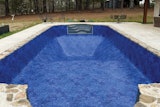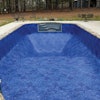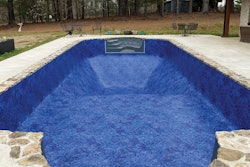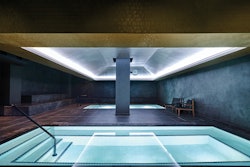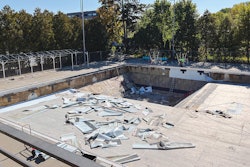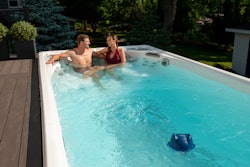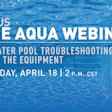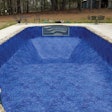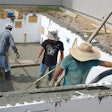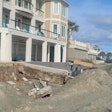Reverse osmosis systems have been around a long time in large-scale applications such as treating public water, desalination and various types of manufacturing processes that require pristine water quality. The technology is used to treat water for everything from brewing beer to manufacturing semiconductors. And whenever you hear the term "desalination," RO is the core technical reference.
The process involves using high pressure to force water through membranes that have the remarkable ability to remove everything from water that is not water, a process that quite literally runs counter to osmosis, which, as most people remember from high school science class, is nature's way of equalizing dissolved concentrations on both sides of a permeable barrier.
The ability to filter impurities down to the molecular level gives these systems the power to create nearly distilled water that cannot be achieved by any other method. For all of that versatility, however, RO systems have been only sparingly adopted by the pool industry, and almost exclusively so in high-use commercial facilities, particularly those in regions impacted by drought.
MOBILE CLARITY
In 2009, a company now known as Pure Water Industries (San Diego, Calif.) began outfitting mobile trailers with generators, pumps, automated control, pre-filters and RO filters used to treat both residential and commercial pools. On the commercial side, the concept effectively addressed the predicament encountered by pool operators: Their water was non-compliant with health codes, but the drought prohibited draining and refilling. That meant the facility had to either close down or truck in water at tremendous expense.
Mobile RO units came to the rescue with the ability to remove dissolved solids and other chemical constituents and thus return existing pool water to standards compliance. Now that drought conditions have abated in the Southwest, however, the demand for RO has diminished — or so it would seem. For residential customers, the technology enabled them to avoid penalties for filling their pools in areas enforcing water conservation.
"The interest is still there," says Bruce Wettstein, president of Pure Water Industries. He notes that while demand has slowed, orders for the mobile units have continued in nondrought years. "We recently began work with 17 YMCA facilities in San Diego County that had been draining and filling each year. We're also continuing to learn more and more what these systems can do."
RELATED: Mobile RO In Growth Mode
Wettstein explains that when pool operators, managers and property owners experience the benefits of controlling key water chemistry constituents without draining and refilling and/or super-chlorinating, many are quick to embrace the technology. The speed bumps in the market, he says, aren't so much about the ebb and flow of drought-driven demand, but a lack of education.
"There are people who do struggle to embrace it, even though RO does what it's supposed to do," he says. "We've never wanted to oversell the benefits, as we've seen with other product categories. There are limitations, but the real challenge is that most people simply don't understand the technology or what it can do."
Those realistic expectations mean accepting that even with RO as a remediation option, there are circumstances in which closing a pool is still necessary.
"For example, we've been asked if this can address a 'code brown' issue and the answer is no, it won't," he says. "There are incidents that can happen that will cause a pool to be closed that we simply cannot prevent."
In addition, RO systems can require a significant investment, which has a natural chilling effect on the market for some. "There are those people who have objected to it because they believe it's too expensive," Wettstein says. "I believe that depends on the client, the nature of the facility, its level of use and the value of having an open pool. What's too expensive for one person is cost effective to another."
WHAT IT DOES
In theory, RO systems can remove "everything" from water. In practice, at least in swimming pools, the process is used to lower various chemical elements and ultimately restore water quality. The most common measurement of RO's performance in pools is the reduction of TDS. However, Wettstein reports that his company's work with RO has revealed some surprising results in terms of how effectively the technology works across a spectrum of key factors.
"We started out thinking in terms of lowering TDS," he says. "Then we learned that it removes calcium. After that we noticed that it lowers cyanuric acid. From there, we started getting calls with people who said they had things like arsenic or lead in their water and wanted it removed. It seems like every time we run one of these things, we're discovering something new that RO does."
That comprehensive ability has proven implications beyond simply bringing commercial pool water into compliance with health codes.
"We see requirements from various manufacturers within the industry that will say if the water is over 1,500 or 2,000 TDS, their warranties are void," Wettstein says. "Or surface material manufacturers who void the warranty if calcium hardness is over 300 ppm. I have no idea how you enforce those kinds of requirements, but if you're trying to lower TDS and calcium, RO makes sense."
Over time, Wettstein says that RO customers have migrated from a reactive approach, such as using RO as a remedy for high TDS or CYA, to a preventive approach.
"We have many requests for continued service because they want to sustain a level of water quality, to stay ahead of potential problems," he says. "For example, we have a customer who uses our mobile unit every three months to prevent problems before it's too late."
With prevention instead of cure as the objective, the company is developing systems that are permanently installed on equipment pads, which can be used on an as-needed basis.
RELATED: Mobile Filtration Saves You From Having To Drain Pools To Lower TDS
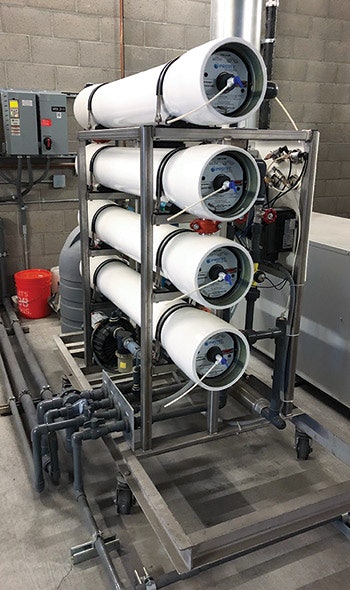 This inline RO filtration system, the first of its kind, is currently undergoing an extensive beta test at a hotel pool in Los Angeles.
This inline RO filtration system, the first of its kind, is currently undergoing an extensive beta test at a hotel pool in Los Angeles.
"The inline concept was really just a natural evolution," Wettstein says. "We started asking ourselves why not have a permanently installed system that can be used intermittently on some of these high use pools? Why not specify an RO system as part of the system right out the gate? We have pools where every time we go back, the TDS is 10,000 to 12,000 ppm. There's no reason it should ever get that high. Why not maintain TDS between 1,000 and 1,500 instead?"
Three years ago, the company entered into an agreement with Marriott to try out the concept on one of its pools in Los Angeles. A beta test is expected to run for three to five years.
"When we started with Marriott they wanted to try it in Los Angeles. The thinking was that if we can get through the health department there, we could anywhere," Wettstein explains. "When we were going through the process, one of the major requirements from the health department was that we could not disrupt the primary filtration, so we put it on a bypass loop with chemical automation control. It's only running when needed and even then it doesn't impact the pool's normal operation."
Wettstein reports the results so far have exceeded expectations. Before, the pool was routinely superchlorinated twice a month. In the past 20 months with an RO bypass, the pool has only required shocking twice.
On average, the RO system runs 24 hours per month, which as had little impact on the pool's energy consumption. Wettstein reports that Marriott is currently considering using the system on a number of its other properties.
Finally, Pure Water Industries has introduced small inline RO systems for treating feed water. So far, the company has installed two systems that have effectively removed metals and high-calcium content when adding make-up water to the pools due to evaporation and splash out.
"We're still developing our own knowledge about what these systems can do," he says. "I'm confident that as we move forward and continue to educate the industry, more and more people will understand and embrace this amazing technology."

















